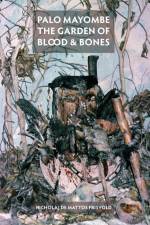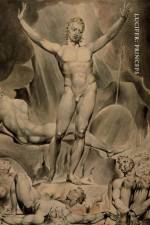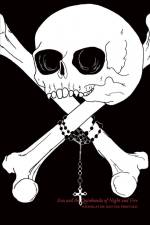av Nicholaj de Mattos Frisvold
469
Ifá: A Forest of Mystery by Nicholaj de Mattos Frisvold is a major study on the cosmology, metaphysics, philosophy and divination system of Ifá, written by a tradition holder and member of the council of elders, known as the Ogboni society, of Abeokuta, Nigeria. Ifá - an alternative name for its prophet Òrúnmìlà - is a religion, a wisdom tradition and a system of divination encoding the rich and complex oral and material culture of the Yoruba people. The Yoruba culture is grounded in memory, an ancestral repository of wisdom, that generates good counsel, advises appropriate ebo (sacrifice) and opens the way to develop a good character on our journey through life and in our interactions with the visible and invisible worlds. The work is a presentation of the first sixteen odù of the Ifá corpus of divination verses explained in stories, allegories and proverbs reflecting the practical wisdom of Ifá. The work is both a presentation of Ifá for those with little knowledge of it, and a dynamic presentation of the wealth of its wisdom for those already familiar with Ifá. The deities and key concepts of Ifá metaphysics are discussed, including: Obàtálá, Ònilé, Sàngó, Ògún, Oya, Òsányìn, Yemoja, Èsù, àse (power), egúngún (ancestry), ìwà (character), and orí (head/consciousness/daimon). Notably, Dr Frisvold has created a work which celebrates the Yoruba wisdom tradition and makes a bridge with the Western world. It is of value for the light that it casts on the origins and mysteries of Èsù and òrìsà, and an important source for those practicing Quimbanda, Palo, Santeria, Vodou and the African Diaspora religions. Yet its lessons are universal, for it is the art of developing character, of attracting good fortune and accruing wisdom in life. As Nicholaj writes: '...Ifá is a philosophy, a theogony, theology and cosmology rooted in a particular metaphysic that concerns itself with the real and the ideal, the world and its beginning. It is rooted in the constitution of man and the purpose of life and the nature of fate. Ifá is a philosophy of character. The philosophy of Ifá lies at the root of any religious cult or organization involving the veneration of òrìsà. [...] Through stories and legends, divinatory verses and proverbs, this philosophy will be revealed piece by piece until the landscape has been laid open before you... '





